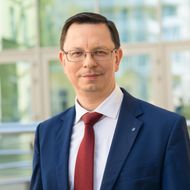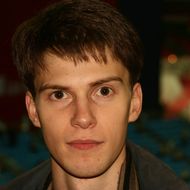‘One of HSE University’s Strategic Goals is to Make Quality Higher Education Accessible to Students from all Corners of Our Country’
The first graduation ceremony for the joint HSE University and Far Eastern Federal University (FEFU) Bachelor’s Programme in Economics took place in Vladivostok. 43 students were each awarded two diplomas. The programme, launched at the School of Economics and Management of Far Eastern Federal University in 2018, gives students the opportunity to master Russia's strongest programme and earn a diploma from HSE University without leaving the Far East. HSE University currently offers 11 double degree programmes at undergraduate and graduate level with nine Russian universities.
The double-degree programme between HSE University and FEFU is a fundamentally new approach to organising inter-university cooperation in Russia, emphasises HSE University Rector Nikita Anisimov, who was head of FEFU in 2018. The 43 launch-year bachelors are qualified specialists who will stay in the region to develop the Far Eastern economy using all the tools they have acquired at HSE University, the HSE Rector said.

Nikita Anisimov, HSE University Rector
The HSE University and FEFU double degree programme is a wonderful example of how networked educational programmes can be built in Russia, where talented students do not flock to Moscow universities and remain in the capital after their studies, but rather receive a strong education in their own region. This is particularly important for the Far East. We are now in negotiations with other universities, including those in Khabarovsk, Novosibirsk, and other cities. We plan to scale our successful experience to other regions. One of HSE University’s strategic goals is to make quality higher education accessible to students from all corners of the country. Within four years, we have opened 11 bachelor's and master's degree programmes with nine Russian universities. I hope that their number will at least double in the near future.
The joint HSE University and FEFU Bachelor’s Programme in Economics is designed to train economic analysts who will be in demand in companies, government agencies, and research and educational centres in the Far East. The curriculum and syllabus are synchronised with those of HSE University. Students prepare their final thesis with two supervisors—lecturers from HSE University and FEFU.
Forty-three students received diplomas from the programme, two of whom—Victoria Koval and Yulia Shestakova—graduated with a red (high honours) diploma. ‘I would like to note the admirable level of the graduates. We approach the evaluation of results with the utmost rigour, maybe even more rigour than with students of HSE University’s Moscow campus. The high bar for the first graduates is an important signal to our other double degree programmes,’ said Pavel Travkin, a member of the programme's academic council, Associate Professor at the Faculty of Economic Sciences and Deputy Vice Rector of HSE University.
Like Pavel Travkin, HSE University Vice Rector Sergey Roshchin flew to Vladivostok to present the diplomas. He stressed that one can be proud of the level of training of this programme’s graduates. ‘The graduates of the 2022 joint economics programme of HSE University and FEFU are pioneers of high-quality economic education in the Far East. They represent a new cohort of specialists—high-level economists and analysts—coming to the Pacific coast,’ he said.

Ekaterina Kolbina, Acting Director of the Department of Economic Sciences at FEFU and Academic Supervisor of the programme on behalf of the Far Eastern university, noted that it was not easy for the first intake, as no one had yet understood that the programme would be much more difficult than other fields. According to her, some students on the programme specifically came from Vologda, St Petersburg, Moscow and Belgorod, not just from the regions of the Far East and Siberia.
Daria Shumilova, graduate of the programme:
‘When I found out about the programme, I immediately thought that it would be cool to get into it. My acquaintances from another city wanted to go to HSE University in Moscow, while I wanted to get my diploma in my home region without a long flight to Moscow. It was exciting, because the best people were chosen for this programme.’
Ekaterina Sokolova, graduate of the programme:
‘At the beginning of the journey, of course, the phrase “two degrees and a job in the country's leading companies” was appealing, but during the education process I realised that it was knowledge above all that we would not have gained by studying in a regular programme.’
Yana Svistilnik, graduate of the programme:
‘My expectations were fulfilled. I really liked the friendly attitude of HSE University lecturers, and I felt like I was a full-fledged part of this university.’
HSE University staff are actively involved in drafting curricula and courses, delivering some lectures, and retraining FEFU lecturers. Non-economic disciplines are supervised by relevant experts, for example, from the Faculty of Computer Science (‘Machine Learning’) or the university-wide Department of Higher Mathematics (‘Linear Algebra’).
Graduates of the programme are in demand in the labour market in Primorsky Krai. Pavel Travkin says that all those who decided not to continue their education on a master's programme were able to find jobs easily. The biggest employers of the programme’s graduates are the Far Eastern Sea Port and the Far Eastern Main Branch of the Bank of Russia.

Sergey Merzlyakov, Academic Supervisor of the programme on behalf of HSE University
The first colleagues from HSE University who were not intimidated by the distance or the unusual design of the programme were Alexander Chelekhovsky, Boris Demeshev and Elena Pokatovich—undisputed leaders in their subject areas. They came with large-scale retraining courses for FEFU lecturers. Another landmark event in the development of the programme was the direct involvement of Sergey Pekarski, Dean of the Faculty of Economic Sciences, who not only supervised the macroeconomics reading, but also largely laid the foundations for the design of the entire joint programme. All of this made it possible to attract a whole host of outstanding experts from HSE University to supervise the key disciplines in the joint programme.
The successful launch of the programme would not have been possible without the boundless trust with which HSE University’s initiatives were greeted by colleagues at FEFU.

